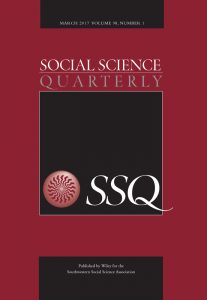Corruption, Formal and Informal
With the UK hosting an Anti-Corruption Summit in London next week, and in the wake of the Panama Papers affair, corruption is again in the spotlight. Cameron has attempted to present the UK as world leaders in tackling tax evasion and tax avoidance. To this end he has cited the UK’s commitment to establishing a central registry of company beneficial ownership, and the introduction of the world’s strictest Anti-Bribery legislation (which criminalizes the failure to prevent a bribe being paid to a UK corporation operating anywhere in the world). Leaving aside for a moment the fact that, as Richard Murphy recently pointed out, Companies House has not received any new resources to support the creation of a register of beneficial ownership, it is quite clear that these moves remain for the most part wedded to the idea that corruption consists of the informal exchange of formally allocated resources – or the distortion of state functions as a result of public sector officials accepting bribes. What of the last pole in Jancsics’ consensus definition of corruption, the idea that a corrupt act is always a deviation from social rules or expectations of some kind? On these broader sociological grounds, the UK seems to be less of a world leader.
On this very subject, the results of a YouGov poll commissioned by David Whyte (author of How Corrupt is Britain?) were published in the Tax Justice Network’s Tax Justice Focus earlier this week. The poll showed that 73% of those surveyed felt ministers accepting corporate boardroom appointments upon leaving office should be banned; 62% felt senior civil servants accepting corporate consultancies should be banned; 62% believed that inviting private corporations to shape regulations should be banned; and 68% felt that private finance initiatives should be banned for public projects. All four kinds of arrangement, with which there is clearly a level of discomfort in the UK, are both widespread and highly consequential. For instance, when the UK bailed out and nationalized banks like RBS during the 2007/8 crisis, an “arms-length” body, UK Financial Investments, was set up to manage the Treasury’s shareholdings at the insistence of senior civil servants like John Kingman. In 2009, the Guardian wrote that Kingman’s supporters “say he is motivated by a genuine interest in public policy and note he could earn more in the private sector.” Perhaps Kingman was reading, because he left as chief executive of UKFI to work for Rothschild from 2010-12, before returning to the Treasury until his eventual retirement this year. Kingman’s insistence on having an arm’s-length body involved, as Julie Froud and her colleagues wrote, the deployment of a “central feature of constitutional rhetoric in Britain and a key device to insulate the workings of agencies with delegated functions from the accountability pressures of the democratic state.” This arms-length setup was not inconsequential. For instance, the ‘City Minister’, Lord Myners, did not leverage UKFI’s considerable shareholding in RBS to contest Fred Goodwin’s sizeable RBS pension settlement. In fact, the Treasury Select Committee suggested that “Lord Myners’ City background, and naivete as to the public perception of these matters may have led him to place too much trust in an RBS Board that he himself described to us as ‘distinguished’.”
For Julie Froud, the fact that UKFI managed to construct the citizen-taxpayer as a shareholder, and frame its objective as “protecting and creating value for the taxpayer as shareholder” meant that
UKFI acquired the identity of an engaged, responsible, large institutional investor whose relations with state-owned bank managements were formally subordinated to familiar private sector investment objectives. Democratic interference with day-to-day management decisions or second guessing of business strategy then became unthinkable; just as high pay, for example, remained justifiable if linked with ‘performance’ as defined inside the shareholder value model.
These arrangements, do not, of course, fit into Jancsics’ minimal consensus definition of corruption – there was no informal exchange or allocation of resources here. And there is no accusation of bribery (as per the World Bank/Transparency International definitions). But then, if you could formalize a system of resource appropriation, what need would you have of bribery?
Critics of Whyte’s survey data might point to Transparency International’s Corruption Perceptions Index, where the UK sites at number 10 (with number 1 being perceived as the ‘least corrupt’). But that’s precisely the point: The Corruption Perceptions index measures the “perceived level of public sector corruption” on the basis of reports by business and policy elites who may in fact benefit from the formal systems of resource appropriation and diversion that clearly concern the majority of those polled by Whyte. This is precisely why Whyte and his colleagues like John Christensen at the Tax Justice Network have spent so long trying to reframe the anti-corruption agenda away from ‘extortive’ (bribery) corruption, and towards ‘collusive’ corruption. As Christensen noted a decade ago, with the rise of indices measuring (perceived) public sector corruption, “little attention has been paid to other power elites, including company directors, and financial intermediaries.” And, focusing on extorive rather than collusive corruption means reinforcing negative images of developing countries and ignoring “higher level corruption of major companies and governments from the North.”
Thus Luxembourg ties for 10th place with the UK on the Corruption Perceptions Index, but even as we head towards the London Anti-Corruption Summit, the LuxLeaks whistleblower Antoine Deltour is on trial for violating Luxembourg’s professional secrecy laws. What Deltour revealed were dozens of administrative tax rulings of questionable legality (there is concern they may violate the EU’s state aid rules). The relevant office in Luxembourg – the Administration des contributions directes – has been described by UC Irvine professor Omri Marian, in a forthcoming paper for the Harvard Business Law Review, as “a for-profit manufacturer of tax avoidance opportunities.” Luxembourg has a high corporate tax rate (29%) but contributes to the erosion of the tax base in jurisdictions other than Luxembourg. Through creative administrative rulings, Luxembourg made a profit by diverting taxation revenue away from jurisdictions engaged in productive activity. Thus, “Luxembourg’s revenues were directly related to the amount of taxes saved by the [corporate] taxpayers in other jurisdictions.” There is no bribery of public sector officials here, no informality in the appropriation of resources formally allocated to other organizations, and apparently no perception among those whom Transparency International choose to survey that corruption is afoot.
Revenue lost to aggressive tax cheating – of the type Luxembourg’s Administration des contributions directes has been facilitating – is of increasing concern to developing and aid-recipient countries. As South Africa’s Finance Minister Pravin Gordhan noted in his 2016 budget speech,
It is a contradiction to support increased development assistance, yet turn a blind eye to actions by multinationals and others that undermine the tax base of a developing country.
And yet, we have still seen stories in the wake of the Panama Papers, from the ODI and the Guardian, asking us not to get hung up on the collusive corruption in the UK (and one might add, Luxembourg) that enables the erosion of developing nations’ tax bases, but instead to focus on the ‘real’ problem of kleptocratic African elites. As Michael Herzfeld might put it, “It is very convenient for the West to ‘demonstrate’ how corrupt those people are.” Herzfeld is suspicious of the moralizing language of corruption tout court, especially where it is used to refer to the informal exchange of formally allocated resources on a small, everyday scale. If formal bureaucratic codes prove simply unworkable, and “if all parties to such arrangements understand what is at stake,” he asks, then “what does it mean to talk about corruption and hypocrisy?” Likewise, Filippo Osella, writing about patrons and brokers who mediate migration from Kerala to the Gulf States, rejects moralizing accounts which identify the exchange of money for favours as corruption. For one thing, accusations of corruption against Keralan migration brokers occur not when money is exchanged for favours, but when there is a “failure to fulfil promises made to clients.” For Osella, the kinds of informal exchange networks that are frequently portrayed as ‘corrupting’ the formal allocation of resources and opportunities by states and markets do not work against these institutions, but toward the same goals: the “maintenance and protection of privilege for a minority under a global capitalist regime.”
Whyte’s YouGov poll suggests that there is a disconnect between the manner in which UK policy elites talk about corruption, and the extent to which their formal behaviours are perceived by the wider public to be morally corrupt. The issue here is not Herzfeld’s incursion of informal and personal networks into unworkable formal bureaucratic procedures, but the formalization of practices which, in Osella’s terms, maintain and protect privilege for a very small minority. Anti-corruption experts are happy to rely on perceptions of corruption when compiling their indices, but only the perceptions of those who tend to benefit from the formalization of rules for the maintenance of privilege – hence Luxembourg’s ‘clean’ score even while the state there is able to profit from the erosion of developing countries’ tax bases. In a provocative article on the forthcoming Anti-Corruption Summit written for Prospect, Alina Rocha-Menocal and Heather Marquette have argued that since
corrupt patron-client networks are often the sole source of security and safety…it may be necessary to tolerate corrupt practices to ensure the delivery of services such as health, transport and utilities…The key lesson here is that palm-greasing and the selective allocation of assets and wealth by those who control the gateways to trade, resources and influence isn’t necessarily damaging in itself. What matters more, in terms of how damaging corruption is, is how that process is managed. For instance, are there mechanisms in place to ensure that beneficiaries of such unearned income funnel it back into domestic growth in one form or another?… Or do they siphon it off into distant tax havens—or, indeed, into prime London real estate?
Posing the question in these terms could allow us to dispense with the focus on bribery, and on the informal allocation of formal resources or assets. Recognizing that the allocation of wealth and assets is always selective and always controlled by gatekeepers, we can ask, in line with the concerns of those surveyed by Whyte, what kinds of formal arrangements between politicians, civil servants and private sector representatives in the UK today are contributing to asset-stripping and the mis-allocation of public resources in the. Whether a similar discursive shift will take place during Cameron’s conference next week is, of course, another question altogether.

![Artwork: Sumi Perera RE (2015) 'White Collar' [http://www.sumi-perera.com/]](https://thesocietypages.org/sociologylens/files/2016/05/Fringe-Benefits-1-500x350.png)




1540-6210/asset/society_affiliation_image.gif?v=1&s=812a48e1b22880cc84f94f210b57b44da3ec16f9)
1468-0491/asset/society_affiliation_image.gif?v=1&s=859caf337f44d9bf73120debe8a7ad67751a0209)
1 Response
[…] **Originally posted at Sociology Lens.** […]